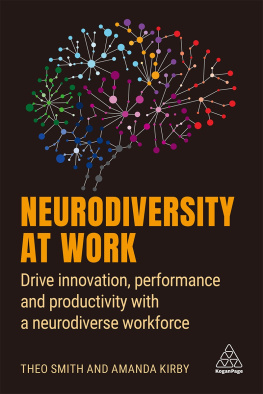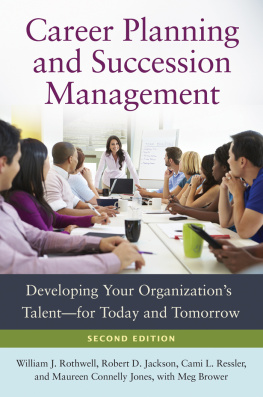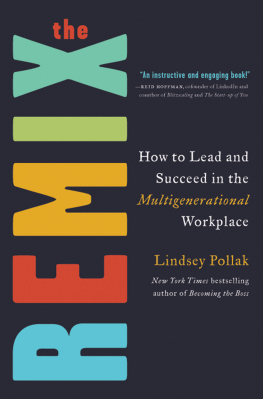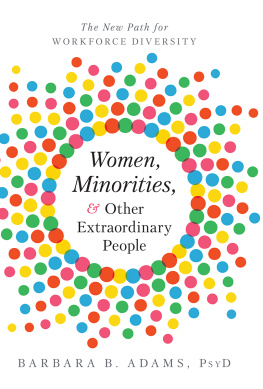Megan Gerhardt, PhD, is a professor of management, director of leadership development, and Robert D. Johnson Co-Director of the Isaac and Oxley Center for Business Leadership at the Farmer School of Business at Miami University. She is also the founder of the Gerhardt Group, LLC, a leadership consulting practice.
Megan has published widely on individual differences, motivation, leadership, and generational differences in the workplace, and her work on Gentelligence has been featured on Forbes.com, NBCNews.com, the Washington Post, the Chicago Tribune, Inc. Magazine, the San Francisco Chronicle, MarketWatch, Business Insider, and the Houston Chronicle, among others. In 2017, her TEDx talk Why I Love Millennials and You Should, Too was released, kicking off the Gentelligence movement.
Josephine Nachemson-Ekwall is an associate director of financial crime prevention policy at UBS, focusing on implementation and adherence to policies, local requirements, and global standards. Josephines work in leadership development focuses on strengths-based development, individual coaching, and the importance of personal mission and values in driving ones life and career. She most recently gave a presentation at the Clifton Strengths Summit on Why Strengths Work and published an article on generational conflict and tension in December 2019.
Brandon Fogel is a senior consultant at Ernst & Young LLC in the People Advisory Services practice, which specializes in organizational change and people management. Brandons work in leadership development focuses on strengths-based development, effective teaming strategies, and the value of goal setting.
Writing this book has been amazingly rewarding and phenomenally challenging, in equal measure. We want to thank Matt, Zach, and Madeline for their love, patience, and contributions over the hundreds of hours we spent writing this book. We collectively apologize for the many nights spent staring into our computer screens and typing loudly when you were trying to sleep.
Many thanks to our fierce agent, Jessica Faust, at BookEnds Literary for pushing us to create the book she knew we could write and for inspiring us to always ask each other, What would Jessica think of this? all the way to the finish line.
Endless gratitude to our thoughtful editor, Kathleen Veslany, for lending us her incredible talents for every chapter (sometimes more than once!), for cheering us on, and for pointing out that reverse mentoring was not a Gentelligent term at all.
Our heartfelt thanks to our senior editor, Suzanne Staszak-Silva, and the entire publishing team at Rowman & Littlefield for taking a chance and bringing our book out into the world.
Love and honor to Miami University, where our author team first met six years ago. To Billy Price and all of the teachers and students (past and present) who have shown us the power of Gentelligence, we are so grateful. We send a special thanks to Beth Bjorlo, our extraordinary marketing consultant, and to the brilliant Rebecca Luzadis and Josh Schwarz for the friendly reviews, nine chapters worth of insightful feedback, and endless support in all things.
And, finally, to our parentsMarlene and John, Sophie and Johan, Stephanie and Howiefor passing down the most important things between generations: love, support, and unwavering belief in our potential.
Brown, Bren. Daring Greatly: How the Courage to Be Vulnerable Transforms the Way We Live, Love, Parent, and Lead. New York: Penguin, 2015.
Cappelli, Peter, and Bill Novelli. Managing the Older Worker: How to Prepare for the New Organizational Order. Boston: Harvard Business Press, 2010.
Conley, Chip. Wisdom at Work: The Making of a Modern Elder. London: Penguin, 2018.
Earley, P. Christopher, Soon Ang, and Joo-Seng Tan. CQ: Developing CulturalIntelligence at Work. Stanford: Stanford Business, 2006.
Finkelstein, Lisa M., Donald M. Truxillo, Franco Fraccaroli, and Ruth Kanfer. Facing the Challenges of a Multi-Age Workforce. New York: Routledge, 2015.
Freedman, Marc. How to Live Forever: The Enduring Power of Connecting the Generations. New York: Ingram Publisher Services US, 2019.
Grant, Adam M. Originals: How Non-Conformists Move the World. New York: Penguin, 2017.
Koulopoulos, Tom, and Dan Keldsen. Gen Z Effect: The Six Forces Shaping theFuture of Business. New York: Routledge, 2016.
Lancaster, Lynne C., and David Stillman. When Generations Collide: Who They Are, Why They Clash, How to Solve the Generational Puzzle at Work. New York: HarperBusiness, 2003.
Ng, Eddy, Sean T. Lyons, and Linda Schweitzer, eds. Managing the New Work-force: International Perspectives on the Millennial Generation. Cheltenham, UK: Edward Elgar Publishing, 2012.
Stillman, David, and Jonah Stillman. Gen Z Work: How the Next Generation IsTransforming the Workplace. New York: HarperCollins, 2017.
Strauss, William, and Neil Howe. Generations: The History of Americas Future, 1584 to 2069. New York: William Morrow, 1991.
Twenge, Jean M. Generation Me: Why Todays Young Americans Are MoreConfident, Assertive, Entitled, and More Miserable Than Ever Before. New York: Free Press, 2006.
. iGen: Why Todays Super-Connected Kids Are Growing Up Less Rebellious, More Tolerant, Less Happyand Completely Unprepared for Adulthoodand What That Means for the Rest of Us. New York: Simon and Schuster, 2017.
Zemke, Ron, Claire Raines, and Bob Filipczak. Generations at Work: Managing the Clash of Veterans, Boomers, Xers, and Nexters in Your Workplace. New York: Amacom, 1999.
RECOMMENDED ARTICLES
Atkins, Jeff. Scientists Who Selfie: Building Public Trust through Social Media. PLOS Blogs, May 10, 2019. https://theplosblog.plos.org/2019/05/scientists-who-selfie-building-public-trust-through-social-media.
Bialik, Kristen, and Richard Fry. How Millennials Compare with Prior Generations. Pew Research Centers Social & Demographic Trends Project, February 14, 2019. www.pewsocialtrends.org/essay/millennial-life-how-young-adulthood-today-compares-with-prior-generations.
Dimock, Michael. Defining Generations: Where Millennials End and Generation Z Begins. Pew Research Center, January 17, 2019. www.pewresearch.org/fact-tank/2019/01/17/where-millennials-end-and-generation-z-begins.
Duhigg, Charles. What Google Learned from Its Quest to Build the Perfect Team. New York Times, February 25, 2016. www.nytimes.com/2016/02/28/magazine/what-google-learned-from-its-quest-to-build-the-perfect-team.html.
Earley, P. Christopher, and Elaine Mosakowski. Cultural Intelligence. Harvard Business Review, April 20, 2016. https://hbr.org/2004/10/cultural-intelligence.
Eswaran, Vijay, and QI Group. The Business Case for Diversity Is Now Overwhelming. Heres Why. World Economic Forum, April 29, 2019. www.weforum.org/agenda/2019/04/business-case-for-diversity-in-the-workplace.
Gallup, Inc. How Millennials Want to Work and Live. Gallup, December 12, 2019. www.gallup.com/workplace/238073/millennials-work-live.aspx.
Gerhardt, Megan. Todays Managers Blew It with Millennials, College Professor Says, and Heres How We Can Avoid Doing It Again with Generation Z. Business Insider, March 11, 2019. www.businessinsider.com/managers-blew-it-with-millennials-generation-z-megan-gerhardt-2019-3.
. The OK, Boomer Meme Hurts Gen Z More Than the Older Generation Its Aimed At. NBC News, November 18, 2019. www.nbcnews.com/think/opinion/ok-boomer-meme-hurts-gen-z-more-older-generation-it-ncna1079276.
Herway, Jake. How to Create a Culture of Psychological Safety.






